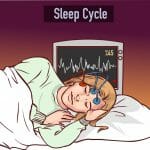There are almost 40 million Americans caring for an adult loved one and yet caregiving can be an isolating and lonely experience. And because it is often done out of sight of other people, it is easy to get burnt out.
Caring for a loved one takes a tremendous amount of energy and internal resources. When we are caring for a child, we usually have a partner to rely on. Daily care for an aging parent or spouse is often an experience carried primarily by one person. And if you are not careful, it can lead to physical, mental, and emotional exhaustion.
Below are eight signs that caregiving may be burning you out:
Withdrawal
Caregiving takes a lot of energy and focus. There is a danger that you may become so focused that you compensate by withdrawing from other activities. We all have a limited capacity on what we can focus on. As we age, our ability to multi-task does diminish. Apply that to caregiving and it is easy to see why caregiving can become an all-consuming focus.
Do you ever come to the end of the day, having expended so much energy caring for your mom or dad that you don’t fell like interacting with other people?
This is okay occasionally but if it has become your default response, then you are getting burnt out.
Loss of interest
You may become so focused on what you need to do to get through the day that you lose interest in other activities. Your field of vision narrows so that you only see what is in front of you. The activities that you used to enjoy, no longer appeal to you.
If this describes your current state of mind — you are on your way to burn out.
Feeling blue
When we are tired it is easy to feel irritable, hopeless, or helpless. Life looks so much more difficult and there doesn’t seem to be any solutions to our problems. We may feel like we have an endless road to walk and we are surrounded by fog or gray skies.
When a loved one has a disease that has no cure, life can seem bleak. But on any journey like this there will be days and moments that are beautiful. If we can’t see those moments and constantly feel like this, we are experiencing burn out.
Change in appetite or weight
Sudden changes in weight or appetite can be triggered by burnout. I know when I am stressed I like to eat. Frankly, I find comfort in food. So, when I feel overwhelmed I am more likely to eat to cope and that leads to weight gain.
You may find the same response in yourself. If you start to gain weight or your appetite changes, look at your stress levels. They are likely higher than they should be, and you need to take action.
Changes in sleep patterns
Are you having trouble sleeping? Do you lie in your bed at night unable to settle? When we are caregiving it is natural to have a lot on your mind. Without a healthy outlet for your fears and worries, your sleep patterns can become disrupted. Unfortunately, this can lead to a downward spiral for you.
Caregiving can also contribute to sleep deprivation. If your mom or dad is up at night and wandering, you are probably not sleeping. Disrupted sleep patterns are intensely fatiguing. If not addressed, they will quickly lead to burn out.
Getting sick and not recovering
One of my friends was taking care of her mom in her own home during the last stages of her life. Not surprisingly, it was an intense set of weeks. After her mom passed away, she caught the influenza bug that was going around and got sicker than she ever had in her life. She just couldn’t shake it.
Getting sick when you are run down is common. You may remember going on a much-needed holiday and spending most of it being sick. It is kind of like your body waits until you relax and then takes advantage of you to get sick. When you don’t recover quickly, it is a sign that you are burnt out.
Excessive use of alcohol and/or sleep medications
When my husband was overseas with the Army, I would not drink alcohol. I knew it was just too easy to deal with the craziness of life with a big glass of wine at the end of the day. I’m not disputing that a glass of wine at the end of the day is a bad thing. But drinking alone when you are under stress can be a slippery slope.
Pay attention to the use of alcohol or sleep medication to deal with your stress. And know yourself. It is easy to spiral downward in this area.
Wanting to hurt yourself or the person you are caring for
Finally, the area that probably causes us the most pain is when we want to hurt the person we are taking care of. We are so wrung dry of internal resources that we find ourselves snapping in response to their behaviour. The constant questions, the loss of articles. or the incontinence make us so angry we want to blow up at them. We feel like they are behaving in this way just to get at us. In that moment, we don’t recognize ourselves. When this happens, you are burnt out and it is time to step away.
Being an effective caregiver means you have two people to care for — your loved one and yourself. Self-care may not come naturally but it is important to do so. You can’t be an effective caregiver for the one you love if you are burnt out. Examine your life right now — do you have any of these symptoms?
In my next blog post I’m going to deal with some of the causes of caregiver burnout and suggest different solutions. Everyone is unique — so choose the ones that are right for you.
Do you need help in the area of Dementia Care? Check out this available resource: Fit Minds Family Caregiver Program







